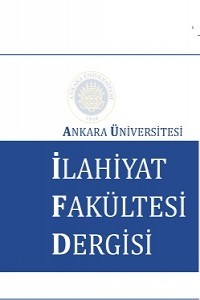Antalyalı Athenaeus’un Felsefesinde Ruh (Pneuma) ve Beden İlişkisi
Antik Yunan Felsefesi, Antik Yunan Tıbbı, Antalyalı Athenaeus, Pneuma, Ruh, Beden, Diyet
Soul (Pneuma) and Body Relation in the Philosophy of Athenaeus of Attalia
Ancient Greek Philosophy, Ancient Greek Medicine, Athenaeus of Attalia, Pneuma, Soul, Body, Diet,
___
- Akyüz, Gülseren ve Merve Akdeniz Leblebiciler. “Otonom Sinir Sistemi Anatomisi ve Değerlendirilmesi,” Türkiye Fiziksel Tıp ve Rehabilitasyon Dergisi 58:1 (2012), ss.1-5.
- Aristoteles. Ruh Üzerine. Terc. Zeki Özcan. Ankara: Sentez Yayınları, 2014.
- Arslan, Ahmet. İlkçağ Felsefe Tarihi 3: Aristoteles. İstanbul: İstanbul Bilgi Üniversitesi Yayınları, 2007.
- Arslan, Ahmet. İlkçağ Felsefesi Tarihi 1: Sokrates Öncesi Yunan Felsefesi. İstanbul: İstanbul Bilgi Üniversitesi Yayınları, 2006.
- Aurelius, Marcus. Kendime Düşünceler. Terc. Ceyda Eskin. İstanbul: Oda Yayınları, 2009.
- Cevizci, Ahmet. Felsefe Tarihi. İstanbul: Say Yayınları, 2017.
- Cevizci, Ahmet. Metafiziğe Giriş. İstanbul: Paradigma Yayınları, 2001
- Coughlin, Sean. “Athenaeus of Attalia on the Psychological Causes of Bodily Health,” Chiara Thumiger ve Peter Singer (ed.), Mental Illness in Ancient Medicine (Leiden & Boston: Brill, 2018) içinde, ss.109-142.
- Eijk, Philip J. van der. Medicine and Philosophy in Classical Antiquity. New York: Cambridge University Press, 2005.
- Flemming, Rebecca. “Demiurge and Emperor in Galen’s World of Knowledge,” Christopher Gill, Tim Whitmarsh ve John Wilkins (ed.), Galen and the World of Knowledge (New York: Cambridge University Press, 2009) içinde, ss.59- 84.
- Galen. Selected Works. Ed. Peter N. Singer. New York: Oxford University Press, 1997.
- Hankinson, Robert James. “Evidence, Externality and Antecedence: Inquiries into
- Later Greek Causal Concepts,” Phronesis 32:1 (1987), ss.80-100.
- Hankinson, Robert James. “Philosophy of Nature,” R. J. Hankinson (ed.), The Cambridge Companion to Galen (New York: Cambridge University Press, 2008) içinde, ss.210-241.
- Herophilus. The Art of Medicine in Early Alexandria. Ed. Heinrich von Staden. New York: Cambridge University Press, 1989.
- Johnston, Ian. Galen: On Diseases and Symptoms. New York: Cambridge University Press, 2006.
- Lloyd, Geoffrey. “Pneuma between Body and Soul,” The Journal of the Royal Anthropological Institute 13 (2007), ss.135-146.
- Nutton, Vivian. Ancient Medicine. Londra & New York: Routledge, 2013.
- Platon. Phaidon. Terc. Ahmet Cevizci. Ankara: Gündoğan Yayınları, 1995.
- Platon. Philebos. Terc. S. Esat Siyavuşgil. İstanbul: MEB Yayınları, 1997.
- Platon. Timaios. Terc. Furkan Akderin. İstanbul: Say Yayınları, 2015.
- Preus, Antony. Historical Dictionary of Ancient Greek Philosophy. Toronto: The Scarecrow Press, 2007.
- Rocca, Julius. Galen on the Brain: Anatomical Knowledge and Physiological Speculation in the Second Century AD. Leiden & Boston: Brill, 2003.
- Runes, Dagobert D. The Dictionary of Philosophy. New York: Philosophical Library, 1942.
- Schiefsky, Mark John. Hippocrates on Ancient Medicine. Leiden & Boston: Brill, 2005.
- Shields, Christopher John. Aristotle. New York: Routledge, 2007.
- Yalçın, Bektaş Murat, Mustafa Ünal, Hasan Pirdal ve Yasin Selçuk. “Anadolu Tıp Tarihi: Bölüm I,” Türkiye Aile Hekimliği Dergisi 20:1 (2016), ss.33-44.
- ISSN: 1301-0522
- Yayın Aralığı: 2
- Başlangıç: 1952
- Yayıncı: ANKARA ÜNİVERSİTESİ > İLAHİYAT FAKÜLTESİ
Mevlānā’nın Dilbilimci ve Gemici Kıssasında Hayat Veren Ölüm: Tematik ve Sembolik Bir Analiz
Prof. Dr. İbrahim Çalışkan Hocamıza Dair: Gönül Tanıklığı Nevinden Bir Haşiye
Ali BALTACI, Mehmet Kamil COŞKUN, İsa CEYLAN
Antalyalı Athenaeus’un Felsefesinde Ruh (Pneuma) ve Beden İlişkisi
Uluslararası Sünnetin Otoritesi Sempozyumu (16-17 Mart 2019, Sakarya)
Felsefeye Adanmış Bir Ömür: Prof. Dr. Necati Öner (1927-2019)
Doğal Din Tasavvuru Üzerinden Hıristiyanlık Okuması: John Toland’ın Tanrı, Din ve Vahiy Anlayışı
